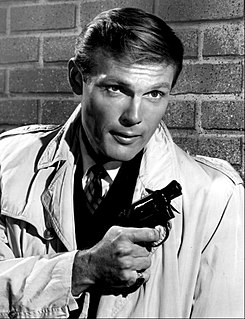A Quote by Elizabeth Gilbert
For if there is one thing I have learned over the years about men, it is that feelings of powerlessness do not usually bring forth their finest qualities.
Related Quotes
Patriarchy values the hard over the soft; the tough over the tender; punishment, vengeance, and vindictiveness over compassion, negotiation, and reconciliation. The 'hard' qualities are linked to power, success, and masculinity - and exalted. The 'soft' qualities are identified with weakness, powerlessness, and femininity - and denigrated.
Our love for children is so immediate in part because we feel their powerlessness immediately; conversely, part of the way we deny our love for men is by denying men's powerlessness. Too often we have confused love for men with respect for them, especially for their power to take care of us - which is really just love for ourselves.
If there is one thing I've learned in thirty years as a psychotherapist, it is this: If you can let your experience happen, it will release its knots and unfold, leading to a deeper, more grounded experience of yourself. No matter how painful or scary your feelings appear to be, your willingness to engage with them draws forth your essential strength, leading in a more life-positive direction.
The "female culture" has shifted more rapidly than the "male culture"; the image of the go-get 'em woman has yet to be fully matched by the image of the let's take-care-of-the-kids- together man. More important, over the last thirty years, men's underlying feelings about taking responsibility at home have changed much less than women's feelings have changed about forging some kind of identity at work.
The passage of time has not altered the capacity of the Redeemer to change men’s lives. As he said to the dead Lazarus, so he says to you and me: “come forth.” Come forth from the despair of doubt. Come forth from the sorrow of sin. Come forth from the death of disbelief. Come forth to a newness of life. Come forth.
As I looked more carefully at the listening matrix I saw that during the past twenty years we had taken a magnifying glass to the first of these four quadrants, the female experience of powerlessness. I saw I was subconsciously making a false assumption: The more deeply I understood women's experience of powerlessness, the more I assumed men had the power women did not have. In fact, what I was understanding was the female experience of male power.
People just didn't write songs that were so directly emotional in those days. They still don't. Part of Hank's [Williams] thing was that he was opening up about relationships between men and women in ways that nobody else did, and I think that's something that made him stand out so much. His songs are just so straightforward about these really deep feelings that are universal, but they're so hard to write about without sounding sappy or over the top. You think of men in that era - they didn't express themselves that way.





































